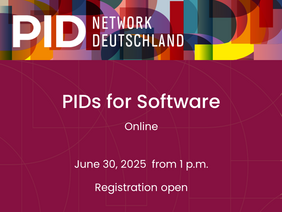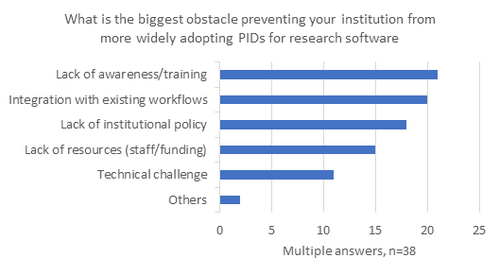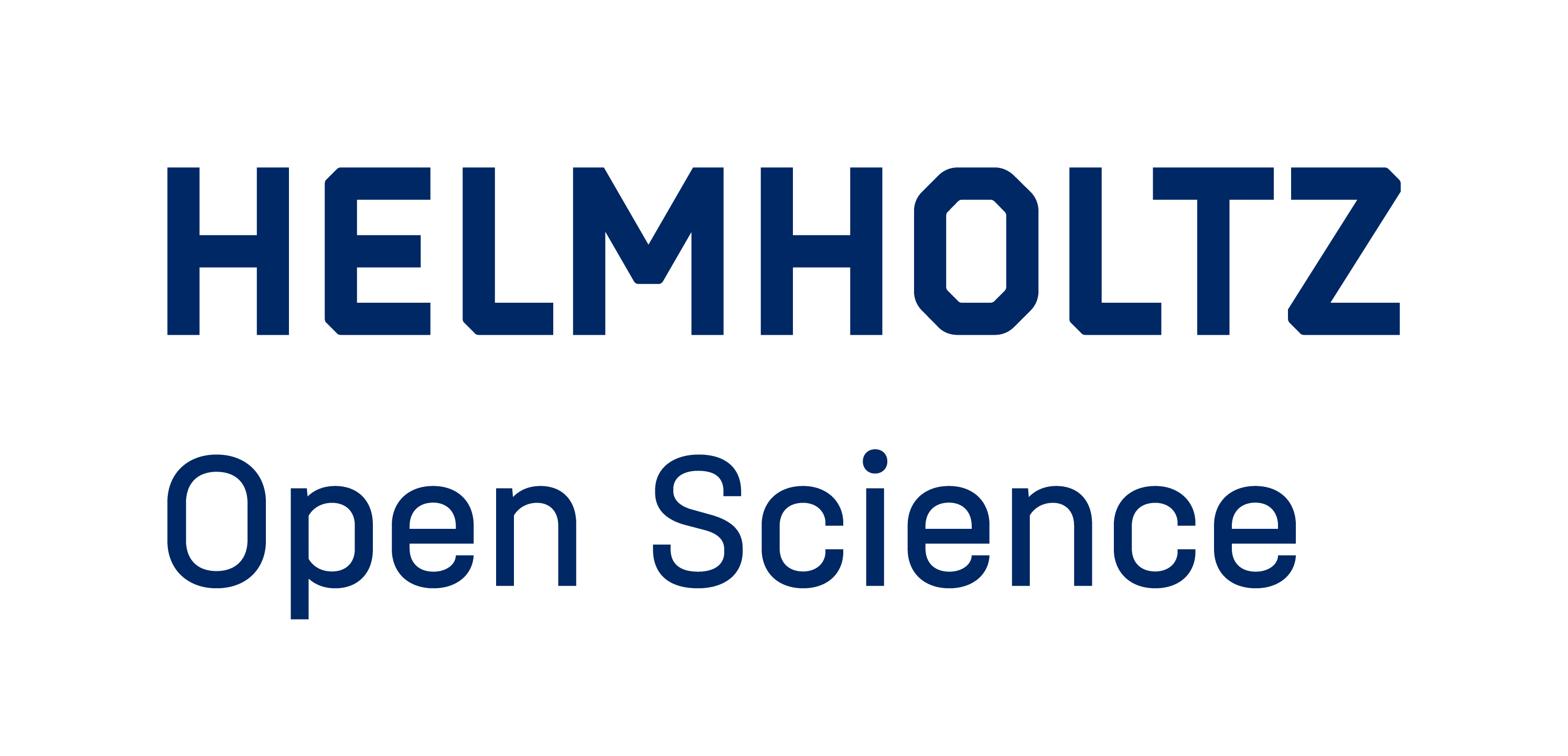As digitalisation in research and teaching progresses, the number of software solutions at scientific institutions is increasing significantly. The reliable provision and use of this software is essential in order to make research results comprehensible and enable their reuse. Recognising software as a scientific product is crucial in order to make its importance for research and innovation visible and to promote its sustainable use and citation. Persistent identifiers (PIDs) play a central role in this: they ensure unambiguous allocation and make it easier to find, access, interoperate and reuse software in line with the FAIR principles.
The “PID Network Germany” project hosted the online seminar “PIDs for Software” on June 30, 2025. We highlighted various aspects relating to the documentation and use of software. In addition to an introduction to national and international initiatives for dealing with research software, the focus was also on practical challenges and possible solutions.
The event began with an introduction to the topic of “research software” and the importance of PIDs in the context of software. Alexander Struck from HU Berlin categorized the relevance for the national and international research landscape.
The HERMES publication system, presented by Stephan Druskat (German Aerospace Center), was developed for research software to facilitate the publication, documentation and visibility of scientific software. It offers researchers a platform to systematically present their software projects, add metadata and make them permanently accessible. The system also supports the integration of PIDs to clearly reference the software and improve its citation capability.
Morane Gruenpeter (Software Heritage) presented the Software Hash IDentifier (SWHIDs), which enables a permanent and unchangeable reference over the entire life cycle of software. This allows software versions, source code and development processes to be reliably linked with one another in order to ensure the traceability and reproducibility of scientific work. In addition, Paul Vierkant shed light on the perspectives of the data provider DataCite and Esther Scheven (DNB) presented the extent to which software products can be mapped in the Common Authority File (GND).
It became clear in all the presentations that referencing software using PIDs can make scientific work processes more transparent, networked and efficient.








